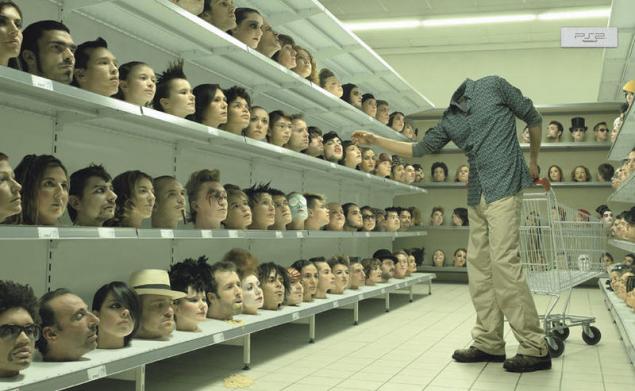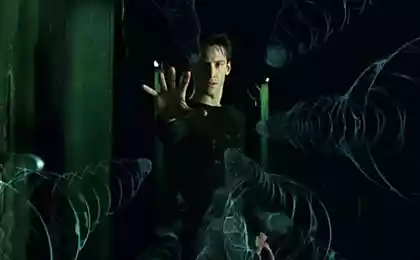619
Malignant
Education — the process and result of mastering sistematezirovannyy knowledge, abilities and skills, a necessary condition of preparing a person for life and work.
So maybe we need to determine what kind of life to cook and to what work?
Teacher, activist, and founder of several schools Michael strong explains why modern education system is no good, and it can save the death of the universities.

From a Lecture by Michael strong about death of universities in the framework of the joint project of Esquire and In Liberty "Alternatives"
American parents spend on their children's education more money than the cost of a good sports car. This is a huge amount. At the same time, you can easily find a million reviews of sports cars is their ride quality, comfort, appearance, even the psychological state behind the wheel — but you'll never see comparable analysis of different schools and universities. At best, this is a rating built on two or three primitive parameters. Parents looking for their kids school as they are looking for products. The variety of offerings on the market is very small. The education system is changing much slower than anything else: progress in this area lags behind all the others. We seriously enjoy the ideas and technologies of the nineteenth century. Humanity must begin to treat education as a normal market service. Now this is clearly not the case.
What we want from education? Unlikely our goal is to teach each student in the land of chemistry. Most of them is for anything not necessary. Rather, the purpose of education is to take the young man and prepare him for life. In any case, he didn't tell him what to do, and just give it skills — including academic — that will allow him to be successful, happy and popular in the present, not the past century.
To be successful, a person needs to Shine in something. The existing educational system poorly estimates that that people best. When I was at Harvard, I had a classmate with the lowest flow the result of a single school exam. But at the age of 18 years, he has managed to become the mayor of his hometown in Michigan. If at 18 you are able to win the election, it doesn't matter how well you passed the exams. Each of the seven billion people on earth has its own talents and needs to obtain a private education, considering it.
Receiving education, one must understand that he goes best, and find a demand for their activities. At the intersection of these two representations it can be successful. If he is willing, say, to Shine in mathematics, but do not want to think that someone may need his talents, he will live worse than they could. If he what happens less — to understand the demand, but will not develop the necessary skills, he won't be able to succeed. One of the most important skills in the twenty-first century is finding new market niches. Everyone needs to be at least a little entrepreneur.
My favorite definition of an entrepreneur goes something like this: one who does not sleep at night, thinking that the world is put together poorly and how to fix it. The decision itself may be difficult, you may lack the necessary skills, but at least you don't have to compete with the rest of humanity that is not concerned with the solution to your problem.
There are common skills needed in order not to get lost in the new world. Good written and oral speech, as a basic understanding of mathematics is absolutely necessary, but the list is not exhaustive. I think, for example, that just an acquaintance with the largest possible number of ideas in itself is very useful. In schools, which I have done, the students read a variety of texts and scientific articles in different disciplines from biology to political science and from Economics to literature. In most schools and universities is not so. Even if the engineer decides to take the course of history, this is a very narrow and very specialized course of history. He won't get so any idea about the diversity of ideas.
In addition, people should spend more time on a variety of futuristic. Futurists not always be right, but at least they are trying to systematically think about what awaits us in the future. For the entrepreneur it is an essential skill. We need to run there, where in a few moments will be the washer, have to see what awaits us around the corner. Any person who sees ahead and has the necessary skills, will be the winner.
So it should be arranged by education, but in reality it looks quite different. In the normal University, which consists of 90% of people, there is a standard program and standard tests, which checks the student's work at the end of the semester. Its success is measured solely by how he is able to absorb other people's ideas. Normal education system would have to look at what the student does well and help them in their development.
American teacher and reformer, John Taylor Gatto, said that the education system in the States is 13 years teaching passivity. Educational environment, he added, is itself an education. For many years each student is taught to sit on a chair, be quiet, turn on the brain with the call and disable them with a call, obeying orders — the system creates passive beings whose lives should be directed by other people.
The education reform does not mean abandoning knowledge. Any student can take the course on integral calculus now it's easy to do and on the Internet. The only question is whether he did it because he is why do you need and it's got a proper motivation, or because mathematics is part of the standard University curriculum. Our task is to switch from external motivation and external standards to internal motivation and internal standards.
If we want people to get the education that will help them in life, and teachers should be different. Teachers need to be more good personal trainers, and already the second conductors didactic information, as it is now. Teaching generally closer to performance, dance, acting, than to the writing of scientific articles and theses. However, the majority of teachers in the universities got their place just for the ability to write a scientific research. And even if they had the opportunity to read a couple of courses early in his career, this is not enough to develop the necessary skills.
Actually knowledge can be obtained and off campus. There is, for example, Coursera is a website where you have the opportunity to listen to thousands of University courses. This is a fantastic tool, if you perceive it that way — as a tool, not as a University. The abundance of resources on the Internet that allows people to learn on their own, gives us the opportunity to bring learning to the development of personal skills. The teacher does not need to retell student a textbook and to check whether it is firmly learned.
Traditional universities obsolete. In the technology sector — and not only there — we see a lot of talented people who are totally neglected in traditional education. In the business world, dozens of them — not only gates and jobs, but also the founder of Whole Foods John Mackey, the founder of Virgin Richard Branson. Hundreds of programmers without a proper education are working in the best companies in the world and receive 100 thousand dollars a year. This is because in the technology sector do not pay too much attention to diplomas and licenses — it only looks at productivity. Google is not too interested in what school you graduated from. In the business world it is always so.
Someone will say that universities function as a social Elevator and help people from the third world to make a career and choose a profession. But even this role is now gone. Imagine a young talented person from the Indian province. It can go traditional by — pass exams, to get into a decent us University, and then wait for job offers from the best companies. But there is another way. It can, for example, to develop open source, which it is not very profitable in themselves. But in fact, large companies that is exactly what we are looking for talent: fashion and popular non-commercial projects. Their offices are filled with people who have made a name for himself in the Amateur — formal standards — communities. It is unclear how it is possible to have a career faster.
There are areas that feel great in the traditional University system, for example, theoretical mathematics. In mathematics, physics, and some other professions, the universities will indeed allow you to develop the necessary talents and are able to appreciate their presence. But we must be honest and admit that this set of fields is negligible in comparison with the diversity of human activities. Educational institutions should either be as diverse as the contemporary world or gradually leave in the past.
I'm not a utopian and I understand that the large, rich and successful universities like Harvard tomorrow will not close. But I don't want to take the other extreme position. Do not forget that neither the size nor the past, nor the current demand for them, not in themselves allow us to predict the future. IBM in the early 1970s was one of the largest companies in the world, but that didn't stop two crazy people to create the Apple. In all the markets, small players often displace large, and this is not surprising. Why universities should it be otherwise? I have no doubt that Harvard will exist for a long time, but it will not have as much power as now. The only thing holding back the rapid development of the cured system of education is over — regulation and shameful system of licenses, which does not develop either public or private schools.
There is an amazing — and very irritating — a paradox. Most people who believe in progressive educational methods, do not believe in a market economy, and most people who believe in the markets, refuse to admit that it is possible fundamentally different, better system of education. Leftists think a lot about education innovation, but they still believe that they can create in the public or regulated private schools. Right-wingers have nothing against competition, but too often speak in the spirit that we need "common standards" or something like that, when we choose schools for their children.
I like to cite the example of James Dyson, who turned on our memory of human ideas about the vacuum cleaner. He had an engineering degree and experience, but to create your outstanding product he tested several thousands of prototypes. A few thousand! As you work he was in contact with all major manufacturers of household appliances, and nobody believed in the success of his enterprise. His success he owes not recognized experts who recognized his talent and perseverance, and countless experiments.
In the world of technology there are no professional licenses. Every person who wants to participate in the creation of new products, can easily find such an opportunity, not asking for advice from the state or even the expert community. Thanks to this technology are developing at an unprecedented pace. And not because licensed professionals are bad — they are good, just on the free market to engineers with doctoral degrees help tens of thousands of fans.
Needless to say that education is more important than a vacuum cleaner, and much more difficult to set. To experiment, we need quality components, which — in the case of a vacuum cleaner to get much easier. In the world there is simply no sufficient number of diversely trained teachers. It just means that we have to spend more time and conduct more experiments until we get a system of any uspevayu changes in the world around us.
I realize that my metaphor is quite pathetic — but it is no less true. As long as education does not pass through a thousand trials and errors, until we build thousands of prototypes and not take care of their development and marketing — not looking for experts — we have what we have now. Education is complicated, but it is a market commodity that can't wait for the normal competition of ideas and businesses.
Source: karpachoff.com/
So maybe we need to determine what kind of life to cook and to what work?
Teacher, activist, and founder of several schools Michael strong explains why modern education system is no good, and it can save the death of the universities.

From a Lecture by Michael strong about death of universities in the framework of the joint project of Esquire and In Liberty "Alternatives"
American parents spend on their children's education more money than the cost of a good sports car. This is a huge amount. At the same time, you can easily find a million reviews of sports cars is their ride quality, comfort, appearance, even the psychological state behind the wheel — but you'll never see comparable analysis of different schools and universities. At best, this is a rating built on two or three primitive parameters. Parents looking for their kids school as they are looking for products. The variety of offerings on the market is very small. The education system is changing much slower than anything else: progress in this area lags behind all the others. We seriously enjoy the ideas and technologies of the nineteenth century. Humanity must begin to treat education as a normal market service. Now this is clearly not the case.
What we want from education? Unlikely our goal is to teach each student in the land of chemistry. Most of them is for anything not necessary. Rather, the purpose of education is to take the young man and prepare him for life. In any case, he didn't tell him what to do, and just give it skills — including academic — that will allow him to be successful, happy and popular in the present, not the past century.
To be successful, a person needs to Shine in something. The existing educational system poorly estimates that that people best. When I was at Harvard, I had a classmate with the lowest flow the result of a single school exam. But at the age of 18 years, he has managed to become the mayor of his hometown in Michigan. If at 18 you are able to win the election, it doesn't matter how well you passed the exams. Each of the seven billion people on earth has its own talents and needs to obtain a private education, considering it.
Receiving education, one must understand that he goes best, and find a demand for their activities. At the intersection of these two representations it can be successful. If he is willing, say, to Shine in mathematics, but do not want to think that someone may need his talents, he will live worse than they could. If he what happens less — to understand the demand, but will not develop the necessary skills, he won't be able to succeed. One of the most important skills in the twenty-first century is finding new market niches. Everyone needs to be at least a little entrepreneur.
My favorite definition of an entrepreneur goes something like this: one who does not sleep at night, thinking that the world is put together poorly and how to fix it. The decision itself may be difficult, you may lack the necessary skills, but at least you don't have to compete with the rest of humanity that is not concerned with the solution to your problem.
There are common skills needed in order not to get lost in the new world. Good written and oral speech, as a basic understanding of mathematics is absolutely necessary, but the list is not exhaustive. I think, for example, that just an acquaintance with the largest possible number of ideas in itself is very useful. In schools, which I have done, the students read a variety of texts and scientific articles in different disciplines from biology to political science and from Economics to literature. In most schools and universities is not so. Even if the engineer decides to take the course of history, this is a very narrow and very specialized course of history. He won't get so any idea about the diversity of ideas.
In addition, people should spend more time on a variety of futuristic. Futurists not always be right, but at least they are trying to systematically think about what awaits us in the future. For the entrepreneur it is an essential skill. We need to run there, where in a few moments will be the washer, have to see what awaits us around the corner. Any person who sees ahead and has the necessary skills, will be the winner.
So it should be arranged by education, but in reality it looks quite different. In the normal University, which consists of 90% of people, there is a standard program and standard tests, which checks the student's work at the end of the semester. Its success is measured solely by how he is able to absorb other people's ideas. Normal education system would have to look at what the student does well and help them in their development.
American teacher and reformer, John Taylor Gatto, said that the education system in the States is 13 years teaching passivity. Educational environment, he added, is itself an education. For many years each student is taught to sit on a chair, be quiet, turn on the brain with the call and disable them with a call, obeying orders — the system creates passive beings whose lives should be directed by other people.
The education reform does not mean abandoning knowledge. Any student can take the course on integral calculus now it's easy to do and on the Internet. The only question is whether he did it because he is why do you need and it's got a proper motivation, or because mathematics is part of the standard University curriculum. Our task is to switch from external motivation and external standards to internal motivation and internal standards.
If we want people to get the education that will help them in life, and teachers should be different. Teachers need to be more good personal trainers, and already the second conductors didactic information, as it is now. Teaching generally closer to performance, dance, acting, than to the writing of scientific articles and theses. However, the majority of teachers in the universities got their place just for the ability to write a scientific research. And even if they had the opportunity to read a couple of courses early in his career, this is not enough to develop the necessary skills.
Actually knowledge can be obtained and off campus. There is, for example, Coursera is a website where you have the opportunity to listen to thousands of University courses. This is a fantastic tool, if you perceive it that way — as a tool, not as a University. The abundance of resources on the Internet that allows people to learn on their own, gives us the opportunity to bring learning to the development of personal skills. The teacher does not need to retell student a textbook and to check whether it is firmly learned.
Traditional universities obsolete. In the technology sector — and not only there — we see a lot of talented people who are totally neglected in traditional education. In the business world, dozens of them — not only gates and jobs, but also the founder of Whole Foods John Mackey, the founder of Virgin Richard Branson. Hundreds of programmers without a proper education are working in the best companies in the world and receive 100 thousand dollars a year. This is because in the technology sector do not pay too much attention to diplomas and licenses — it only looks at productivity. Google is not too interested in what school you graduated from. In the business world it is always so.
Someone will say that universities function as a social Elevator and help people from the third world to make a career and choose a profession. But even this role is now gone. Imagine a young talented person from the Indian province. It can go traditional by — pass exams, to get into a decent us University, and then wait for job offers from the best companies. But there is another way. It can, for example, to develop open source, which it is not very profitable in themselves. But in fact, large companies that is exactly what we are looking for talent: fashion and popular non-commercial projects. Their offices are filled with people who have made a name for himself in the Amateur — formal standards — communities. It is unclear how it is possible to have a career faster.
There are areas that feel great in the traditional University system, for example, theoretical mathematics. In mathematics, physics, and some other professions, the universities will indeed allow you to develop the necessary talents and are able to appreciate their presence. But we must be honest and admit that this set of fields is negligible in comparison with the diversity of human activities. Educational institutions should either be as diverse as the contemporary world or gradually leave in the past.
I'm not a utopian and I understand that the large, rich and successful universities like Harvard tomorrow will not close. But I don't want to take the other extreme position. Do not forget that neither the size nor the past, nor the current demand for them, not in themselves allow us to predict the future. IBM in the early 1970s was one of the largest companies in the world, but that didn't stop two crazy people to create the Apple. In all the markets, small players often displace large, and this is not surprising. Why universities should it be otherwise? I have no doubt that Harvard will exist for a long time, but it will not have as much power as now. The only thing holding back the rapid development of the cured system of education is over — regulation and shameful system of licenses, which does not develop either public or private schools.
There is an amazing — and very irritating — a paradox. Most people who believe in progressive educational methods, do not believe in a market economy, and most people who believe in the markets, refuse to admit that it is possible fundamentally different, better system of education. Leftists think a lot about education innovation, but they still believe that they can create in the public or regulated private schools. Right-wingers have nothing against competition, but too often speak in the spirit that we need "common standards" or something like that, when we choose schools for their children.
I like to cite the example of James Dyson, who turned on our memory of human ideas about the vacuum cleaner. He had an engineering degree and experience, but to create your outstanding product he tested several thousands of prototypes. A few thousand! As you work he was in contact with all major manufacturers of household appliances, and nobody believed in the success of his enterprise. His success he owes not recognized experts who recognized his talent and perseverance, and countless experiments.
In the world of technology there are no professional licenses. Every person who wants to participate in the creation of new products, can easily find such an opportunity, not asking for advice from the state or even the expert community. Thanks to this technology are developing at an unprecedented pace. And not because licensed professionals are bad — they are good, just on the free market to engineers with doctoral degrees help tens of thousands of fans.
Needless to say that education is more important than a vacuum cleaner, and much more difficult to set. To experiment, we need quality components, which — in the case of a vacuum cleaner to get much easier. In the world there is simply no sufficient number of diversely trained teachers. It just means that we have to spend more time and conduct more experiments until we get a system of any uspevayu changes in the world around us.
I realize that my metaphor is quite pathetic — but it is no less true. As long as education does not pass through a thousand trials and errors, until we build thousands of prototypes and not take care of their development and marketing — not looking for experts — we have what we have now. Education is complicated, but it is a market commodity that can't wait for the normal competition of ideas and businesses.
Source: karpachoff.com/























